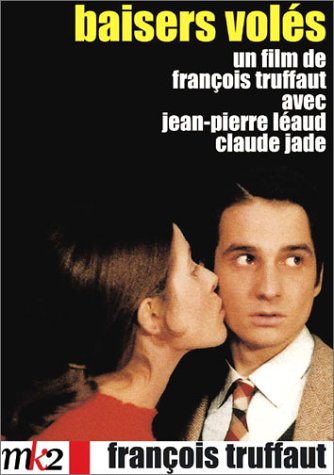Thomas Hardy was the most significant novelist in the last quarter of
the nineteenth century. He achieved fame with
Crowd (1874), and went on to produce a series of novels, including The
Return of thr Native (1878), Thr Mayor of Casterbridge (1886), The
Woodlanders (1887), Tess of the D'Urbervilles (1891) and Jude the Obscure
(1895). Prompted in part by the hostile reaction to the last of these
novels, Hardy then turned exclusively to poetry, which had always
been his preferred medium.
Hardy's novels are set almost exclusively in a tract of Southwest
England that he calls Wessex. The choice of location is significant,
George Eliot clearly has a finer and fairer mind than most of her readers, but the overall impression in her novels is that she writes from
the centre of a social and cultural consensus. Hardy, by contrast,
making use of Wessex, writes from the margins: there is consistently
a sense of standing outside and questioning established values. Other
late Victorian authors adopt differenr approaches, but a similar effect
is often athieved; there is a sense of disintegration, with a steady cen-
tre falling apart, By the end of the century there is, again and again, an
impression of social institutions - such as the family and marriage -
crumbling, and of authors adopting a sceptical attitude towards
conventional morality.
In the case of Hardy, such scepticisim is apparent as early as Far from
the Madding Crowd, which tells the story of Gabriel Oak and the woman
he Loves, Bathsheba Everdene. Bathsheba, however, marries the dashing Sergeant Troy, who has abandoned Fanny Robin, the only woman
he ever really loved; she dies, along with their new-born child, in the
workhouse. Troy is not a man to be constrained by marriage; at odds
with his wife, he disappears. He is assumed to have drowned.
Bathsheba is now pursued by a gentlerman farmer, William
Boldwood, She promises Boldwood that, if in six years there is no
indication of her husband being alive, she will marry him, but Troy
reappears with the intention of reclaiming his wife. Boldwood murders his rival. As for Bathsheba, she finally marries Oak. The novel,
therefore, ends conventionally, with marriage and social renewal, but
Hardy's novels, including Far from the Madding Crowd, actually place far
more emphasis on the failure of relationships, the breakdown of
marriages, and even divorce.
The implication is that the conventions and institutions society
has established in order to promote the well-being of that society are
simply at odds with the reality of what people are like.
It is an awareness
that extends to the novel form itself the novel as a genre relies
upon a number of plot conventions, such as a movement towards
marriage as a device for resolving and concluding the story, but
Hardy, characteristically, is likely to indicate a gap between
the neatness of a fictional convention
and the untidiness of individual
actions. For example, at one point in Far from the the Madding Crowd
Bathsheba, as she starts to face up to the failure of her marriage, flees
from Troy and sleeps in the open air.
The next morning, as she awakens,
she sees a ploughboy on his way to work and a schoolboy on his
way to school. There is a similar moment in George Eliot's
Middlemarch as the heroine, Dorothea, after a sleepless night in which
she examines her life, looks out of the window and sees people going
about their daily business. It is a drcisive moment in Dorothea's life:
she realises that she must accept her part In the general scheme of
things rather than focusing, selfishly, upon herself. The scene in Faf
from the Madding Crow could almost be described as a parody of this
moment, Bathsheba goes through the motions of the kind of
character-changing experience that heroines have in novels, but does not
change at all; she remains fickle, immature and self-absorbed. The
basis of her attraction to Troy was emotional and sexual, and there is
no indication that she is now going to start acting in a different, more
rational way.
All of Hardy's major characters are romantic, impractical or simply
disorganised in the management of their lives in the same kind of
way as Bathsheba.
A great many English novels focus on an individual
coming into collision with society,
In an Eliot novel, even though
the narrative is complex and has contradictory strands, the hero or
heroine tends to adjust his or her behaviour to achieve a working
relationship with society. Even Wilkie Collins, author of The Woman
in White, who adopts a more sceptical attitude than Eliot and most of
his contemporaries, presents chararters who by the end of the work
have usually established a secure, even conventional,
niche in middle-class society. The typical Hardy hero or heroine, by contrast, with
actions dominated by the heart rather than the head, cannot establish
a working compromise with society, It might be felt that this is merely an individual quirk on the part of Hardy, that he is a novelist drawn
to romantic, emotionally drien characters. But more is involved
than just the perculiar bias of Hardy's mind.
Hardy's rejection of established patterns of social reconciliation
in fiction is syptomatic of a
wider collapse of a consensus, and even the collapse of a confidence
in rational debate, that becomes apparent
at the end of the nineteenth century. There is a widespread feeling that society cannot hold together; that larger, disruptive forces are at work that promote a
fundamental instability.
Some of the ways in which Hardy establishes a different, late-century perspective involve nothing more than a minor adjustment of a
literary convention; thr consequences, however can be substantial.
For example, Middlermarch srtarts with the name of the main character,
Miss Brooke. Hardy neary always holds back the names of his characters;
before being named, they are identified simply as men or
women engaged in some form of activity. The effect is to suggest that
there is something elemental about people that is more fundamental
than their social identity; a basic quality exists before, and quite separately from, the rather limiting social identity that is imposed upon
them. In a rather similar way, Hardy frequently quibbles over the
naming of a place; often, as with Lower Longpuddle or Weatherbury,
in Far from the Madding Crowd, he provides alternative place names. The
effect is to distance himself from the conventional social order; society names people and places, but in doing so brings them under its
command, In Hardy's novels, there is consistently a sense that something more is in evidence than just the imposed order of society.
This stance necessarily has implications for the manner in which Hardy
narrates his novels, In distancing himself from the conventional
social order, he needs to stand outside the established discourse of
that social order; that is to say, certain ways of seeing and judging are
implicit in the omniscient manner of narration that we witness in
many realistic novels, but Hardy, choosing to remove himself from a
standard social outlook, must also detach himself
from a conventional narrative voice. There is consequently, always a sense in a
Hardy novel that the narrator's voice is self-conscious, turning on
itself, drawing attention to itself and frequently drawing attention to
the fallibility or partiality of its judgements.
This combines with a story in which, most commonly,
the characters are not rebels by choice, but slmply because their natures lead
them to be Society, however, will not tolerate rebellion. As there is
no possibility of social reconciliation - no possibility, that is, of these
characters finding a quiet and complaisant role in the village or
towns where they live -Hardy's novels almost invariably end with
the death of the major characters. Right through to the very end of
the novels in which they feature, they are estranged from society and
its dominant values. Far from the Madding Crowd,
ending with a marriage,
is the exception, But it is still a novel that breaks with tradition.
The most obviois way in which it does this is in its emphasis on sexuality.
The force of sexual desire is apparent everywhere in the novel,
even, for example, in something as trifling as a description of the first
day of June: 'Every green was young, every pore was open, and every
stalk was swollen with racing currents of juice.' It would be fair to say
that the most distinctive quality of Far from the Madding Crowd, and the
thing that invests the novel with a joyous and exuberant energy, is
the way in which it rediscovers, and takes a delight in presenting,
aspects of sexual experience and feeling that the novel has, perhaps
throughout the entire Victorian period up to this point, been denying,
sublimating or repressing. Sex in earlier Victorian novels is often
a dark and guilty secret; sex in Far from the Madding Crwod is dangerous
but exciting.
The freshness of Far from the Madding Crowd is, however, a quality
that Hardy cannot maintain. As his career as a novelist continues he
focuses in a far more critical way on the discipline and conformity
that society imposes upon people; there is always a price that must
be paid if characters overstep the mark or choose to defy society's
rules. The Mayer of Casterbridge is the story of Michael Henchard, a
poor man who, having sold his wife at a country fair at the start of the
novel, rises in the social hierarchy to become the mayor in his adopted community. There is, though, an extravagant and ferocious
dimension to Henchard's personality, something that becomes
apparent when he resumes drinking after or abstaining for many years.
This dangerous side to Henchard puts him in conflict with all those
around him, including his daughter. And, as there is no way back for
him into the social order of Casterbridge, he dies, at the end of the
novel, an alienated and angry man. At one point, Hardy describes a
petty incident of vandalism:
The farmer's boy could sit under his barley-mow and pitch a stone into
the office-window of the town-clerk;
reapers at work nodded to acquaintances standing on the pavement-corner; the red-robed judge, when he condemned a sheep-stealer,
pronounced sentence to the tune of Baa,
that floated in at the window from the remainder of the flock, browsing hard
by; and at executions the wating crowd stood in a meadow immediately
before the drop , out of which the cows had been temporarily driven to
give the spectators room.
The passage conveys a sense of the compactness of the town of
Casterbridge, and how the town and the surrounding countryside
merge, but what is also conveyed is an altogether more disturbing
idea; it is as if the vandal who throws the stone goes on to steal sheep,
and is finally executed. Such indiscipline seems natural, but the other
side of the coin is that society has instituted a system of law and order
to regulate people, and this includes the ultimate sanction of taking
the lives of those who step out of line.
In Tess of D'urbervilles and Jude the Obscure Hardy is far more
indignant about the way in which social regulations and conventions
ruin people's lives. Tess of the D'Urbervilles is the story of a country girl
who is raped by Alec D'Urbeville, and then abandoned by Angel
Clare, the man she marries, when he discvers her sexal history.
Eventually Tess murders Alec, and the novel ends with her execution.
The aggrersive nature of a male-dominated society, the harshness of
the law, and a lack of tolerance and understanding are all apparent as
signifiㅊcant strands in the novel; Tess is the victim, and it is the society
that she lives in, together with the people, especially the men, in that
society who accept its conventional attitudes and morality that
destroy her life. As against the heavy hand of those who pursue,
abuse and condemn her, there is a consistent emphasis on Tess as a
free and natural spirit. But if Hardy presents Tess's sexuality as, essentilly,
innocent, he is also aware of a vicious side to human nature,
something most apparent in the dark sexual instincts of Alec
D'Urberville.
By the time he wrote Jude the Obscure Hardy's outlook was very pessimistic. In his other novels there is always an impression of the traditional order of farm life, but in Jude the Obscure the hero, Jude
Fawley, begins his working life on a farm with a soul-destroring job
as a human scarecroe. Jude wants to advance in life, but his ambition
of attending university proves an Impossible dream. He is trapped
into marriage by a farm-girl, Arabella, but then falls in love with his
cousin, Sue Bridehead, a married woman. She and Jude set up home
together and have two children, but Jude's child by Arabella, Father
Time, murders his half-brother and half-sister, and then kills himset,
Sue returns to her former husband, and Jude lives alone. The most
obvious aspect of Jude the Obscure is how the education system, class
barriers, religious and moral conventions and the divorce laws all
conspire against Jude.
The chararters to a certain extent, however, also create their own
misfotunes. At the centre of thr novel are the nervous and highly
strung Jude and Sue, chararters who do not belong in any one place,
and who, when they move, do not embark on a journey with any
kind of clcar goal. On the contrary, they move aimlessly from place
to place. This is a plot device - also used in Tess of the D'Urbervilles -
that works very effectively to convey a sense of alienated and dislo-
cated poople. It is an idea of chararter that Hardy use to good effect
in his poetry. Rather than focusing on a hero or heroine who can turn
the course of events, Hardy, as in his novels, focuses upon powerless
and defeated individuals in an enormous universe. In 'Drummer
Hodge', for example, a poem written in rerponse to the Boer War,
there is an efect of bafflnement, with a small character encountering a
world that resists both control and comprehension. In many of
Hardy's poems, there are similar feelings of loss, confusion, uncertainty and pain.
But a far more disturbing and extreme quality is in evidence Jude
the Obscure. When father Time kills the other children and himself, a
sense of something dark and irrational is exposed; it is as if, in the
wake of the kind of compromise that used to exist,
something malignantly destructive has appeared.
This is more than an idiosyncratic
perception on the part of Hardy. Geneally in late nineteenth-century literature there is a feeling of having moved beyond an old liberal
dispensation, and a fear of brutal, irrational forces ttat lie just below
the surface becomes evident. Repeatedly, text from this period offer
an impression of probing into dark place, including the dark areas
of the mind. In brief, the sustaing fictions of an earlier generation
fail, and more troubling, disruptive ideas move in to take their place.








